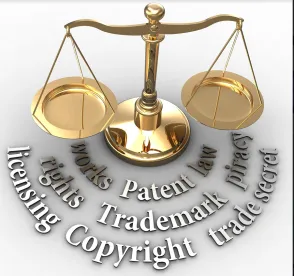On October 26, 2018, the Supreme Court granted certiorari to review the Federal Circuit’s decision in Return Mail, Inc. v. United States Postal Service, et al., 868 F.3d 1350 (Fed. Cir. 2017), addressing specifically whether the federal government itself has standing to challenge patents via post-grant proceedings under the America Invents Act (“AIA”).
Background
Return Mail, Inc. (“Return Mail”) owns a covered business method (“CBM”) patent that is generally “directed to the processing of [undeliverable] mail . . . due to an inaccurate or obsolete address for the intended recipient.” In 2011, Return Mail sued the U.S. Postal Service and the United States (collectively, “Government”) in the Court of Federal Claims because the parties’ efforts towards licensing failed. Return Mail’s suit was based on 28 U.S.C. § 1498, which provides:
Whenever an invention described in and covered by a patent of the United States is used or manufactured by or for the United States without license of the owner thereof or lawful right to use or manufacture the same, the owner’s remedy shall be by action against the United States in the United States Court of Federal Claims for the recovery of his reasonable and entire compensation for such use and manufacture.
In 2014, the Government filed a petition to invalidate Return Mail’s patent. Return Mail opposed, noting that the Government lacked standing under § 18(a)(1)(B) of the AIA, which provides:
A person may not file a petition for a transitional proceeding with respect to a covered business method patent unless the person or the person's real party in interest or privy has been sued for infringement of the patent or has been charged with infringement under that patent.
(emphasis added). “Because the [G]overnment is immune from suit under the Patent Act,” Return Mail argued that the Government is barred from seeking CBM reviews.
The PTAB found for the Government and invalidated the challenged claims on the basis that they were drawn to ineligible subject matter. On appeal, the Federal Circuit affirmed reasoning that, “being sued under § 1498(a) is broad enough to encompass being sued for ‘infringement’” and that “nothing in the text of § 18(a)(1)(B) indicates an intent to restrict ‘infringement’ to suits that fall under the Patent Act.” While the majority noted that its finding would “mean[] that the government would enjoy the unique advantage of not being estopped in the Claims Court from re-litigating grounds raised during a CBM review proceeding,” it deferred that issue to Congress, indicating that “it is not [their] role to speculate on these policy concerns in the absence of Congressional guidance.”
With respect to the AIA’s use of “person”, the appellate court ruled that neither party actually addressed “the significance, if any, of th[is] word,” which raises waiver concerns. Nonetheless, the court stated that “[t]he AIA does not appear to use the term ‘person’ to exclude the government in other provisions.” Moreover, “[t]here does not appear to be any reason, and Return Mail has provided none, to curtail the ability of the government to initiate a CBM proceeding when, like a party sued in federal district court or the ITC, it has interests at stake with respect to the patent it has been accused of infringing.” As a result, the majority “conclude[d] that the Postal Service was ‘sued for infringement’ within the meaning of § 18(a)(1)(B) when Return Mail filed the Claims Court suit against it under § 1498(a),” i.e., the Government has standing.
Judge Newman dissented, finding that this issue was a matter of jurisdiction, which “is not subject to waiver,” and that “[t]he general statutory definition is that a ‘person’ does not include the United States and its agencies unless expressly provided.” Following this decision, Return Mail filed a petition for a rehearing en banc, which was denied on December 15, 2017.
Return Mail’s Petition
On May 14, 2018, Return Mail filed a petition for a writ of certiorari to the Supreme Court and presented two issues:
1. “Whether the government is a ‘person’ who may petition to institute review proceedings under the AIA.”
2. “Whether a § 1498(a) action for the eminent domain taking of a patent license by the government is a suit for patent ‘infringement’ under the AIA.”
The Supreme Court granted certiorari only on the first issue. The main points of Return Mail’s petition are:
|
|
The appellate decision would effectively provide the Government “the ability to challenge patents through AIA review proceedings without being estopped from re-litigating the same challenges in subsequent cases”; |
|
|
As raised in Judge Newman’s dissent, “[t]he law is clear that when a statute uses the term ‘person,’ it is presumed that Congress intended to exclude the [G]overnment.” (emphasis in original); and |
|
|
The Supreme Court’s language in its Oil States and SAS decisions “illustrate[s] the common understanding that the word ‘person’ does not include the [G]overnment.” |
Implications
The Supreme Court’s limited grant on the first issue puts the spotlight on whether a “person” as used in the AIA includes public parties. With Oil States and SAS being only a few months old, this case provides another opportunity for SCOTUS and patent practitioners to assess the balance between public and private interests at the PTAB.





 />i
/>i

